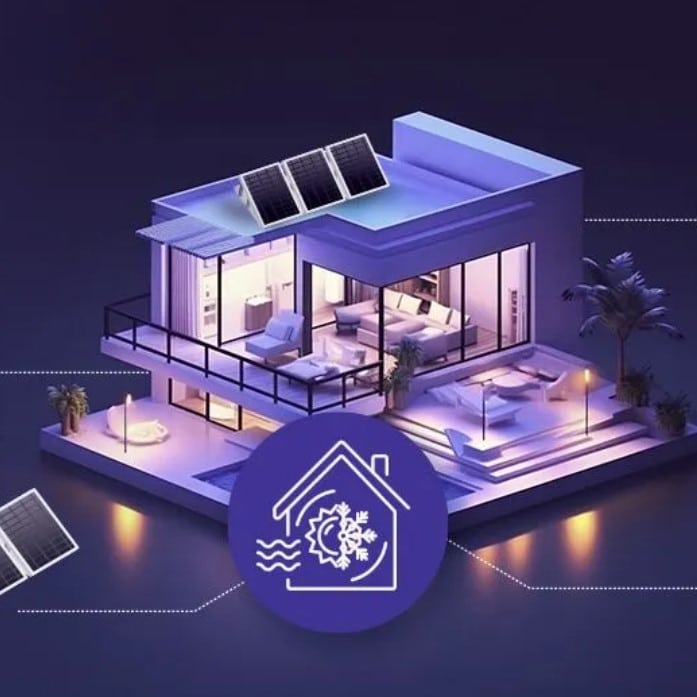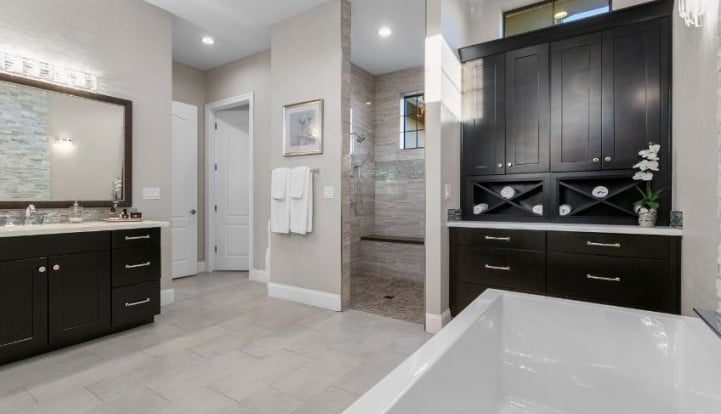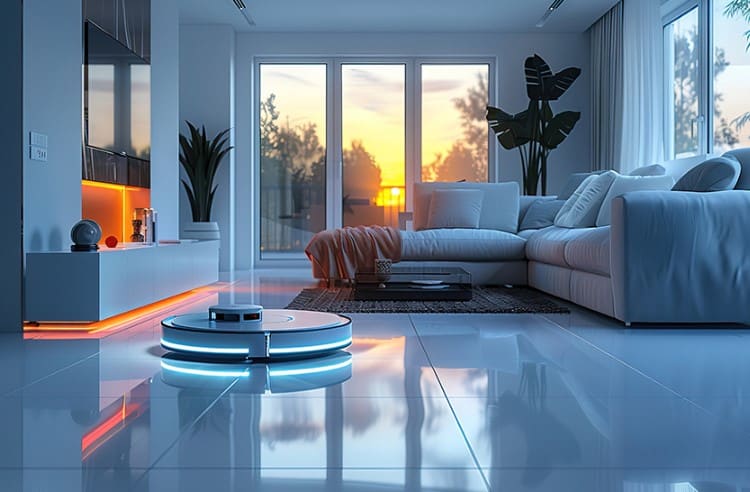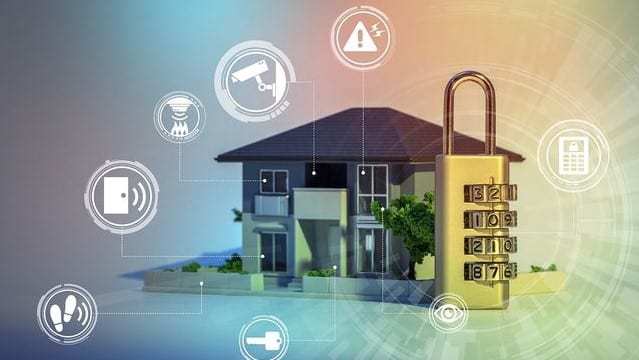Smart homes and solar power are a match made in heaven. By integrating solar energy into your smart home setup, you can take control of your home’s energy usage, reduce electricity costs, and contribute to a more sustainable future.
Whether you’re upgrading your existing smart home or just beginning your solar journey, this comprehensive roomvivo.com will walk you through everything you need to know about smart solar systems
Why Choose a Smart Home System?
A smart home solar system is an advanced energy solution that combines solar power with smart home technology, allowing homeowners to monitor, control, and optimize their energy consumption.
Here are some key reasons why you should consider integrating solar into your smart home setup:
- Energy Independence: A smart solar system can help reduce your reliance on the traditional grid by generating clean, renewable energy directly from the sun. With solar panels and battery storage, you can store excess energy for later use, further enhancing energy independence.
- Cost Savings: Solar power is a cost-effective solution that can significantly lower your monthly electricity bills. When paired with smart home technology, you can optimize your energy usage by monitoring real-time consumption and adjusting it accordingly.
- Environmental Benefits: Solar energy is a clean, renewable resource that reduces your home’s carbon footprint. By adopting solar power, you’re contributing to environmental sustainability by reducing greenhouse gas emissions.
Key Components of a Smart Home System
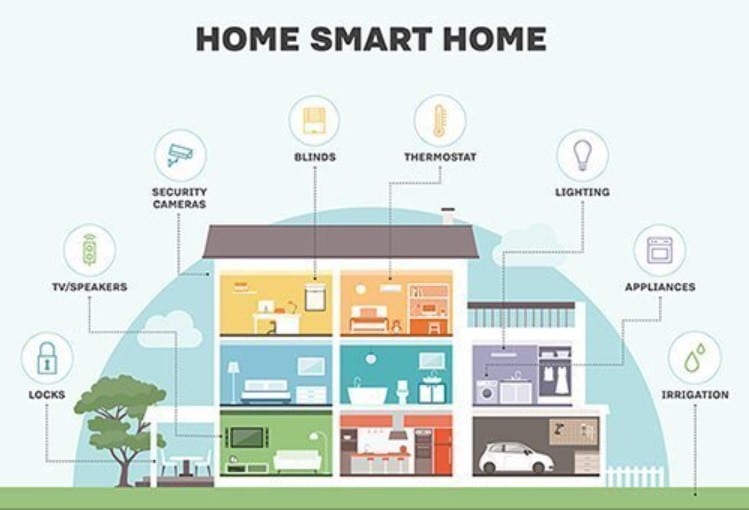
A smart home solar system consists of several key components that work together to provide a seamless, energy-efficient experience. Below are the primary elements:
Smart Solar Panels
Solar panels are the foundation of any solar energy system. Smart solar panels differ from traditional ones by incorporating advanced technology that allows for real-time monitoring, performance optimization, and even self-diagnosis of potential issues.
Smart solar panels are revolutionizing the way we harness solar energy, providing homeowners with more efficiency and control.
Unlike traditional panels, these advanced systems incorporate real-time monitoring, performance optimization, and self-diagnosis features to ensure maximum energy output.
Whether you’re considering a solar energy upgrade or looking for efficient solar power solutions, smart solar panels can offer a more reliable and cost-effective way to power your home
Benefits:
- Real-Time Monitoring: Keep track of energy production and consumption.
- Improved Efficiency: Smart solar panels optimize energy generation even in low-light conditions.
- Self-Diagnosis: Smart panels detect and report issues like shading or damage, ensuring optimal performance.
Solar Battery Storage
Solar battery storage allows homeowners to store excess energy produced by their solar panels.
This stored energy can be used during the night or on cloudy days, ensuring your home continues to run on solar power even when the sun isn’t shining.
Solar Battery Storage enables homeowners to store surplus energy generated by their solar panels for later use.
This stored energy ensures that your home can rely on solar power during nighttime or cloudy days, reducing dependence on the grid and increasing energy efficiency. Modern systems also allow real-time monitoring for optimal performance.
Benefits:
- Energy Independence: Store excess energy for later use, reducing reliance on the grid.
- Backup Power: Solar batteries provide backup power during outages, ensuring uninterrupted access to electricity.
Smart Solar Inverters
The solar inverter is responsible for converting the DC power generated by solar panels into AC power, which can be used in your home.
Smart solar inverters come with additional features like energy monitoring, grid interaction, and integration with other smart home devices.
Maximize the efficiency of your solar energy system with the latest smart solar inverters that offer cutting-edge technology such as real-time energy monitoring and seamless grid interaction.
By integrating your smart solar inverter with other home automation devices, you can optimize your energy consumption and reduce utility costs.
Stay in control of your energy production and usage with these innovative features that prioritize convenience and sustainability.
Benefits:
- Efficient Energy Conversion: Optimizes the conversion of solar power for maximum energy savings.
- Integration with Smart Devices: Compatible with smart home systems for seamless energy management.
Home Solar Monitoring
Home solar monitoring systems allow you to track your solar energy production and consumption in real time.
These systems often come with user-friendly apps that provide detailed insights into how much energy your home is using and how much is being generated by your solar panels.
Home solar monitoring not only enhances your understanding of energy usage but also helps in optimizing your solar energy system’s performance.
By utilizing advanced home solar monitoring technologies, homeowners can identify trends and make informed decisions to maximize energy efficiency.
Benefits:
- Energy Usage Insights: Helps homeowners understand and optimize energy consumption.
- Performance Tracking: Monitor the performance of your solar panels to ensure they are working efficiently.
Real-World Examples of Smart Home Systems
There are numerous companies offering smart home solar systems that integrate advanced technology for energy management.
Below are five real-world examples of products that can enhance your home’s energy efficiency.
1. Tesla Solar Panels & Powerwall – Complete Solar and Storage Solution

Overview:
Tesla offers one of the most comprehensive solar solutions with its solar panels and Powerwall battery storage. Tesla’s system is designed for homeowners seeking a fully integrated smart home solar solution.
The Powerwall allows for seamless energy storage and use, while the solar panels offer high-efficiency energy production.
Pros:
- Integrated solar and battery storage solution
- High-efficiency solar panels
- Real-time energy monitoring via the Tesla app
Cons:
- Higher upfront cost
- Installation may take time due to demand
Price:
Prices start at approximately $10,000 for a basic solar panel system with Powerwall storage, depending on your home’s energy needs.
Features:
- Solar panel efficiency of 19% to 22%
- Powerwall battery storage capacity of 13.5 kWh
- Energy monitoring through the Tesla app
Use Case:
Ideal for homeowners looking for a complete solar and storage solution that can be controlled and monitored through a single app.
Where to Buy: Visit Tesla’s website.
2. Enphase Energy – Smart Solar Inverters and Microinverters
Overview:
Enphase Energy specializes in smart solar inverters and microinverters, which are designed to optimize the performance of each solar panel.
The company’s microinverter technology allows for real-time monitoring and higher efficiency, especially in areas with shading issues.
Pros:
- Optimized energy production for each panel
- Real-time performance monitoring
- Scalable for different system sizes
Cons:
- Higher cost for individual panel optimization
- Complex installation process
Price:
The cost of Enphase microinverters starts at around $1,000 to $2,000 for a typical residential system.
Features:
- Real-time energy monitoring via the Enphase app
- Built-in safety features to prevent issues with shading or panel damage
- High efficiency in energy conversion
Use Case:
Ideal for homeowners who want to optimize the performance of each solar panel and ensure maximum energy production.
Where to Buy: Visit Enphase’s website.
3. LG Chem RESU – Solar Battery Storage
Overview:
LG Chem’s RESU battery storage system is designed for homeowners who want to store excess energy produced by their solar panels.
The compact battery is efficient, allowing users to store energy for use during power outages or at night.
Pros:
- Compact design with efficient energy storage
- High compatibility with various solar systems
- Reliable backup power during outages
Cons:
- High upfront cost
- Limited storage capacity compared to other options
Price:
Prices start at approximately $7,000 for a single battery, with additional costs for installation.
Features:
- Storage capacity ranges from 3.3 kWh to 9.8 kWh
- Compatible with most solar inverters
- Compact design for easy installation
Use Case:
Best for homeowners looking for reliable energy storage and backup power in case of grid outages.
Where to Buy: Visit LG Chem’s website.
4. Sonnen Eco – Smart Home Battery System
Overview:
Sonnen Eco offers an intelligent solar battery system that integrates with solar panels and smart home devices.
The system includes energy management software that allows homeowners to optimize their energy usage and store excess solar power.
Pros:
- Smart energy management software
- High energy storage capacity
- Easy integration with solar panels and smart home devices
Cons:
- Expensive compared to other battery options
- Requires professional installation
Price:
Prices start at approximately $9,000 to $12,000, depending on the storage capacity and features.
Features:
- Storage capacity from 5 kWh to 20 kWh
- Intelligent energy management system
- Seamless integration with smart home technology
Use Case:
Perfect for homeowners seeking an all-in-one smart solar and energy management solution with advanced features.
Where to Buy: Visit Sonnen’s website.
5. SunPower Solar Panels – High-Efficiency Smart Solar Panels

Overview:
SunPower is known for producing some of the most efficient solar panels on the market.
Their smart solar panels come equipped with monitoring technology, allowing homeowners to track energy production and optimize usage.
Pros:
- Industry-leading efficiency rates
- Built-in monitoring system
- Durable and long-lasting design
Cons:
- Higher upfront cost
- Limited availability in certain regions
Price:
SunPower panels range from $15,000 to $25,000 for a complete system, depending on the size and energy needs of your home.
Features:
- Efficiency rates up to 22.8%
- Built-in microinverters for optimized energy production
- Real-time monitoring via SunPower’s app
Use Case:
Ideal for homeowners seeking the most efficient solar panels available with advanced monitoring and optimization capabilities.
Where to Buy: Visit SunPower’s website.
Benefits of Smart Homes Systems
Smart home solar systems offer numerous benefits that go beyond traditional solar installations.
By incorporating advanced technology, you can enjoy greater control over your energy usage and increase your home’s efficiency. Here are some key benefits:
- Real-Time Monitoring: Track your energy production and consumption in real time, allowing for better energy management.
- Energy Savings: By optimizing energy usage and storing excess energy, smart solar systems can help reduce your electricity bills significantly.
- Environmental Impact: Using solar energy reduces your reliance on fossil fuels, helping to lower your home’s carbon footprint.
- Increased Home Value: Installing a smart solar system can increase the resale value of your home, making it more attractive to potential buyers.
Where to Buy and How to Buy Smart Homes Systems
Purchasing a smart home solar system requires careful consideration of your home’s energy needs, budget, and goals. Here’s how to get started:
- Consult with a Solar Provider: Start by contacting a solar provider like Tesla, SunPower, or Enphase to get a consultation and a custom quote.
- Choose the Right System: Decide whether you want a full solar and storage system or just solar panels. Consider whether you need additional features like energy monitoring or battery storage.
- Installation: Professional installation is essential for smart home solar systems. Ensure that your chosen provider offers certified installation services.
FAQs about Smart Homes Systems
Q1: How much does a smart home system cost?
A smart home solar system can range from $10,000 to $25,000, depending on the size of your home, energy needs, and whether you opt for battery storage.
Q2: Can I integrate power with my existing smart homes system?
Yes, many smart home solar systems are designed to integrate with existing smart home devices, allowing for seamless control and monitoring.
Q3: What are the long-term benefits of a smart home system?
In addition to cost savings and energy independence, smart home solar systems can increase the value of your home and reduce your environmental impact.
By choosing the right smart solar system for your home, you can take control of your energy consumption, reduce costs, and contribute to a more sustainable future.
With advanced technology and innovative solutions, smart home solar systems are the future of home energy management.
